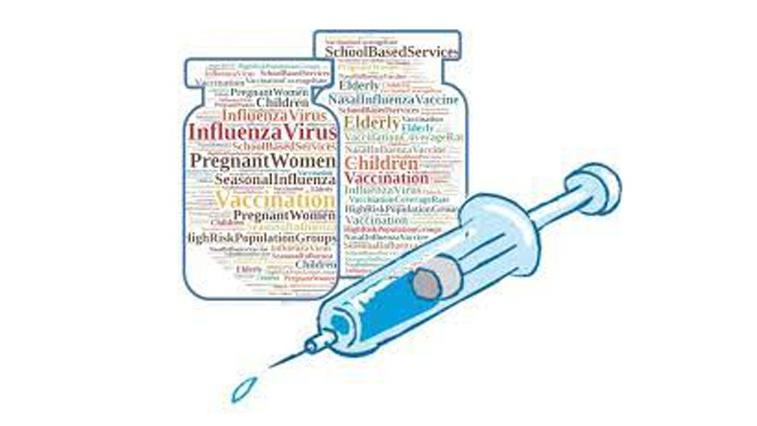 The Centre for Health Protection of the Department of Health says Hong Kong entered the influenza season on Jan 11 this year, with the influenza season expected to last eight to 12 weeks. (PHOTO / LEGCO, HKSAR)
The Centre for Health Protection of the Department of Health says Hong Kong entered the influenza season on Jan 11 this year, with the influenza season expected to last eight to 12 weeks. (PHOTO / LEGCO, HKSAR)
HONG KONG – Hong Kong’s health authorities have urged residents who haven’t yet received influenza vaccines to do so and high-risk groups to receive a COVID-19 vaccine booster shots with various respiratory infectious diseases starting to show a rising trend.
“As prevention is better than cure, rather than putting out fire, fire should be prevented. Vaccination is an important firewall,” Secretary for Health Professor Lo Chung-mau said in the Legislative Council on Wednesday while replying to a query on government measures to cope with the peak period of respiratory tract infections.
There were 1,098 reported outbreaks of COVID-19, 3,429 influenza-like illnesses, and 4,452 respiratory tract infections in schools and residential care homes of the city in the past six months, according to government data.
READ MORE: Call for heightened vigilance as HK enters winter flu season
In the last week of December, total 2,559 people were admitted to hospitals with a principal diagnosis of influenza-like illness syndrome while 323 were admitted with COVID-19, the data showed.
In particular, I appeal to those who have not yet received influenza vaccination to do so as soon as possible, and high-risk groups to receive a booster dose of the COVID-19 vaccine in a timely manner as well.
Lo Chung-mau, Secretary for Health, HKSAR
Pointing out that the city has entered the first winter after the lifting of mandatory mask-wearing requirements, Prof Lo said the Centre for Health Protection has already announced that Hong Kong entered the influenza season on Jan 11 this year, with the influenza season expected to last eight to 12 weeks, in addition to the possible transmission of influenza and COVID-19 simultaneously.
“The Department of Health, the Hospital Authority, and the Primary Healthcare Office have prepared and implemented specific measures for prevention and control of respiratory infectious diseases.”
Advising people of high-risk groups including residents of residential care homes to wear a surgical mask while going out to crowded places, the secretary said those developing symptoms should even consider staying at home and seeking appropriate medical treatment according to the situation.
The activity level of COVID-19 started to rise in mid-December from the low base while the city went through an active summer influenza season from August to October last year. Despite returning to a low level, influenza started to edge higher in early December, he said.
“Since the launch of the 2023/24 Seasonal Influenza Vaccination programs, over 1.73 million doses of SIV have been administered so far, representing an increase of over 20 percent as compared with that of the same period of last year.”
ALSO READ: Hong Kong's hospitals brace for winter flu surge
Talking on targeted measures for the high-risk groups, he said the CHP has solicited assistance from the Education Bureau, parent-teacher associations, and district-based school associations to encourage more schools to participate in the school outreach vaccination, and also contacted schools that have not enrolled to provide targeted assistance.
The Department of Health’s Visiting Health Teams have promoted the prevention of influenza and COVID-19 to the elderly and their carers, he said, adding that 14 designated elderly health centers have been providing SIV for members and people aged 65 or above.
The DH has adopted an opt-out approach for its outreach vaccination for the residents of the RCHs for the elderly and persons with disabilities, he added.
Talking on the target of vaccination rate, the secretary for health said the relevant scientific committees have not set a specific target on the SIV rate.
“Nevertheless, the higher the vaccination rate among the high-risk groups, the better the results in preventing serious illnesses caused by influenza,” he said, adding that a significant increase of over 20 percent in the uptake under this year’s SIV programs is noted as compared with that of the same period of last year.
READ MORE: Peak flu season nears as new COVID-19 variant spreads
The Hospital Authority has formulated a phasic response plan, under which it would review service demand and deploy necessary manpower and resources including providing respiratory panel testing for pediatric patients, conducting COVID-19 admission screening for patients with higher risks and ensuring adequate stock of antiviral drugs, added Prof Lo.


